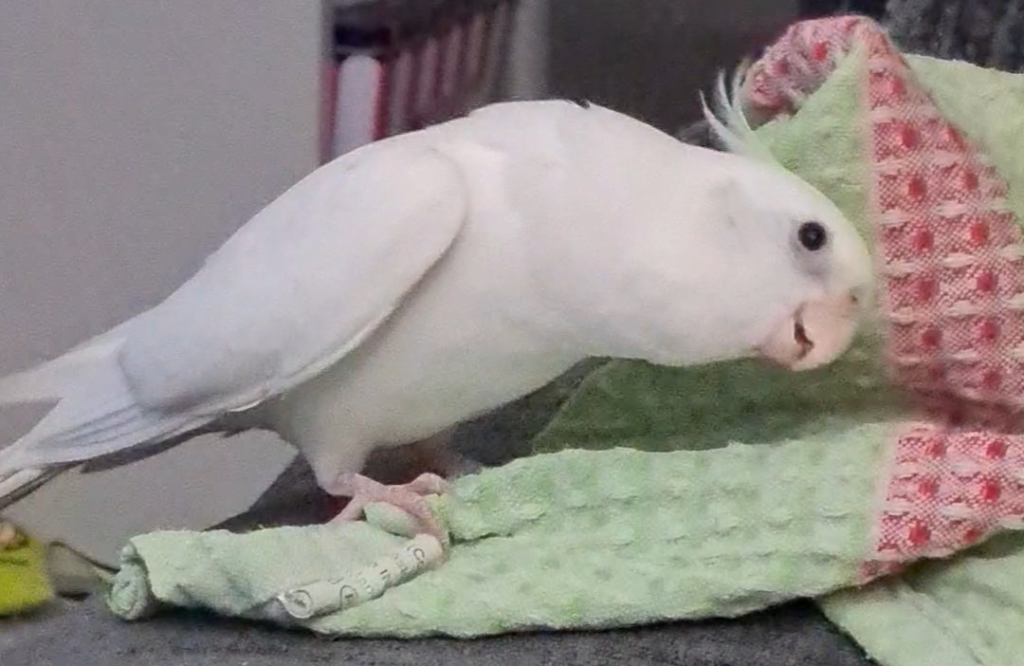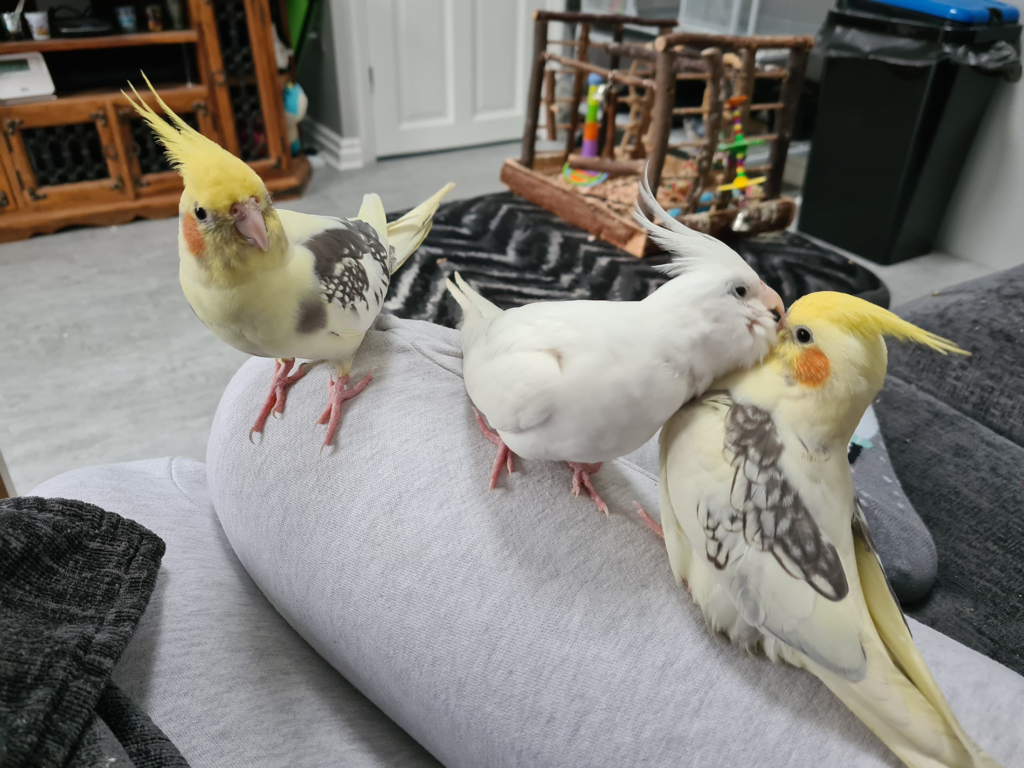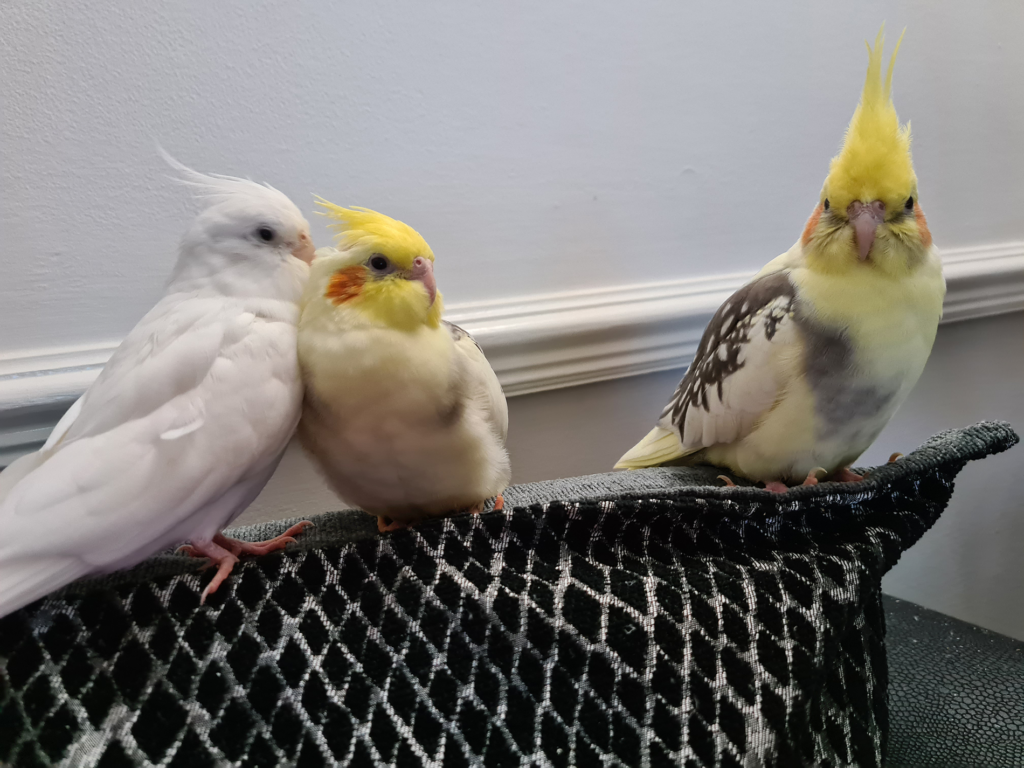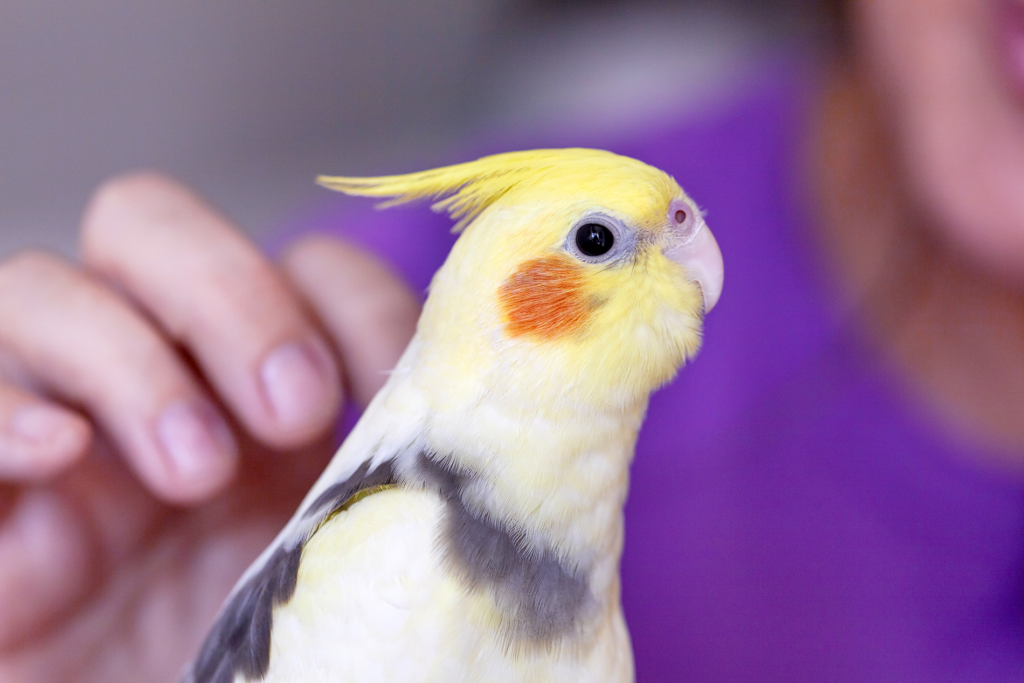Translating the Chirpy Conversations: Cockatiels Talking to Each Other
Cockatiels talking to each other may seem like a unique chorus of enchanting sounds to us, but for these charming birds, it’s their way of meaningful communication. This article dives deep into the communicative behaviours of these feathered friends, their vocalisations, and how they interact with each other and humans.
The Fascinating World of Cockatiel Chatter
When you hear cockatiels talking to each other, it’s not just random noise. Instead, it’s a fascinating method of communication embedded with social structure, emotions, and potential threats. They use an array of sounds, pitches, and tones to convey messages to their fellow birds.
Observing a pair of cockatiels talking to each other is like watching a fascinating live debate. They raise their voices in excitement, lower their tone in submission, and even use unique chirps for each of their companions.
Analyzing Cockatiel Conversations: A Study in Bird Linguistics
Researchers studying cockatiels talking to each other have noted distinct patterns and variances in their vocalisation. Cockatiels change their chirping styles based on the listener.
They adjust their voice, tone, and pitch depending on whether they are talking to a mate, a young one, or another cockatiel.
In fact, parent cockatiels use a softer tone when they are talking to their offspring, similar to a human’s baby-talk.
The Social Dynamics of Cockatiel Conversations
Cockatiels talking to each other have a deep social significance.
In cockatiel communities, vocalisation plays an essential role in asserting dominance, showing submission, and maintaining social harmony.
A dominant cockatiel may use a particular chirp to maintain its authority, while a more submissive bird may use a different tone to show respect.
Observing cockatiels talking to each other can provide a glimpse into their complex social dynamics.

How Cockatiels Talk Back to Humans
Cockatiels aren’t just fantastic at talking to each other; they also have a knack for talking back to humans. Or tea towels, as Buddy is demonstrating above!
Many cockatiel owners report their pets mimicking their voice or replicating specific sounds, a phenomenon that scientists attribute to the bird’s impressive ability to learn and imitate.
Cockatiels talking back to you may imitate your laughter, mimic a song you often play, or even reproduce the sound of your cell phone ringing.
The boys in my flock have all learned to whistle the tune “if you’re happy and you know it”, wolf whistle, and speak words including “peekaboo” and “hey Buddy boy”. The last one comes from Buddy. I would say it to him each time I passed him, and in turn, he has taught it to the other males!
However, it’s not just imitation; some well-trained cockatiels can learn to associate certain sounds or words with specific actions or objects.
For instance, some cockatiels may learn to say “apple” when they want a piece of fruit or “out” when they want to leave their cage.
This demonstrates their intelligent understanding of human speech and their ability to use it for communication.
Decoding the Mystery: The Scientific Basis of Cockatiels Talking
How can cockatiels, both when talking to each other and to humans, mimic such a vast range of sounds?
The answer lies in their unique vocal apparatus called the ‘syrinx.’
Unlike humans who produce sound using vocal cords, birds like cockatiels have a syrinx, a specialised organ located at the junction of their trachea and bronchial tubes.
The syrinx can control the pitch and volume of sounds independently from each bronchial tube, allowing cockatiels to create complex vocalisations.
This is why cockatiels can mimic sounds so effectively, whether they are talking to each other or replicating the sound of a ringing telephone.
Engaging with Your Chatty Cockatiel: A Practical Guide
To engage with your cockatiel and have them start talking back to you, you need to create an environment that promotes communication.
Start by mimicking their chirps and sounds, and slowly introduce simple words or phrases.
Remember to be patient, as learning takes time.
With enough practice, your feathered friend might just start talking back to you, adding a new level of interaction to your pet-owner relationship.
Another tip is to play recordings of other cockatiels talking and whistling. There are some excellent YouTube channels for this method. I usually leave a playlist of sounds on for my cockatiels when I leave the house.
I use my Amazon Alexa Echo Show. Not only can it play YouTube videos, but I can also dial into it like a video phone call.

Wrapping Up: The Captivating Charm of Cockatiels Talking
In summary, the sound of cockatiels talking to each other is much more than beautiful background noise.
It’s a language, a social interaction, and a testament to the remarkable capabilities of these birds.
Whether they are talking to each other, asserting their authority, or trying to engage with you, every chirp, whistle, and squawk from a cockatiel carries a message.
So the next time you hear a cockatiel chattering, listen carefully. You might just catch a snippet of the intriguing world of cockatiel conversation.

Frequently Asked Questions
What does it mean when cockatiels are talking to each other?
When cockatiels are talking to each other, it signifies their social interactions, emotions, and responses to potential threats. They use varied sounds, pitches, and tones to communicate distinct messages.
Can cockatiels really understand human language?
While cockatiels don’t understand human language as we do, they can associate specific words or sounds with certain actions or objects, especially if they are frequently exposed to these sounds.
How can I get my cockatiel to talk to me?
Begin by imitating their chirps and slowly introduce simple words or phrases. Make sure to repeat these consistently and reward your bird when they mimic the sound. Remember, patience is key!
Why does my cockatiel make strange noises?
Cockatiels use a wide range of sounds to express different emotions or signals. These could range from a happy chirp to a warning hiss. If the sound is new and persistent, it might be worth checking with a vet.
Can cockatiels learn to mimic any sound?
Cockatiels are talented mimics and can learn to replicate a wide variety of sounds, from cell phone rings to other birds’ calls. However, each bird is unique, and their ability to mimic may vary. Generally, the males can mimic sounds and talk but females cannot. However, there are instances where females have learned to mimic sounds and whistle tunes. But these occasions are very rare.
How do cockatiels communicate with each other in the wild?
In the wild, cockatiels use their distinct vocalisations to establish dominance, express submission, and maintain social order within their community. They also use it to alert others of potential danger.
Why does my cockatiel chirp when I leave the room?
Cockatiels are social creatures and often chirp when their favourite human leaves the room. This can be their way of expressing loneliness or trying to call you back. My Chicken for example, loves to scream at me to ask where I’m going when I leave!
Can all cockatiels talk?
Not all cockatiels will talk or mimic sounds. The ability to talk varies from bird to bird. Males are generally more vocal and more likely to mimic sounds than females.
Are cockatiels intelligent?
Cockatiels are highly intelligent and are known for their problem-solving abilities. They can learn to associate words with actions or objects, and their ability to mimic sounds is a testament to their cognitive capabilities.
How can I understand my cockatiel’s language?
Understanding your cockatiel’s language requires patience and careful observation. Pay attention to the different sounds they make in response to various situations or stimuli, and you’ll gradually begin to decode their language.


